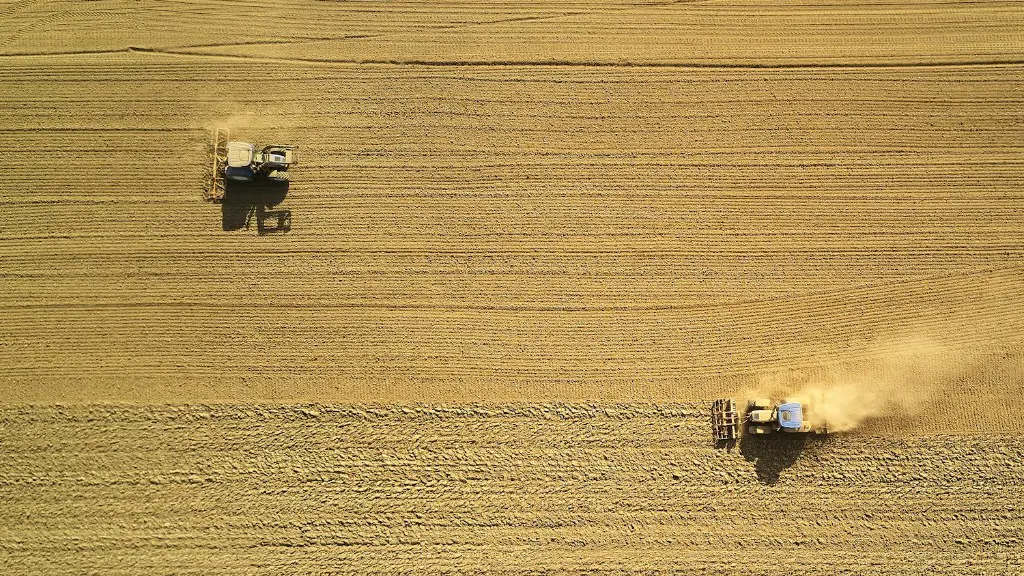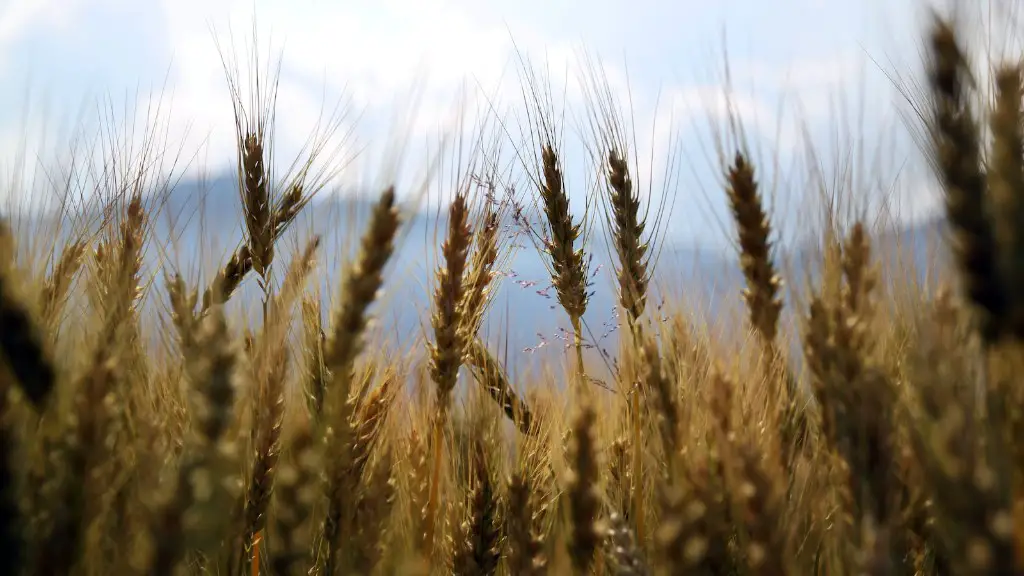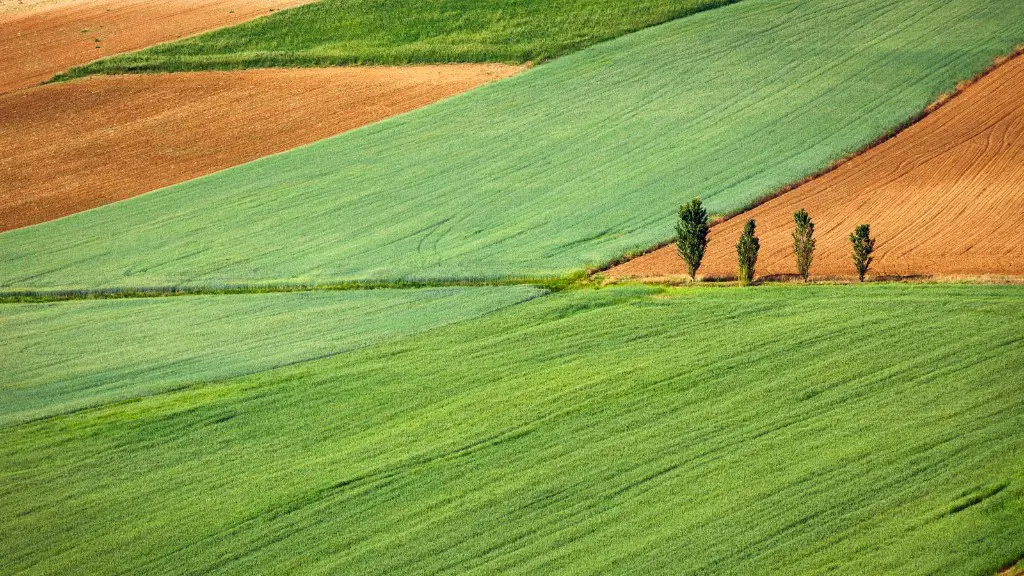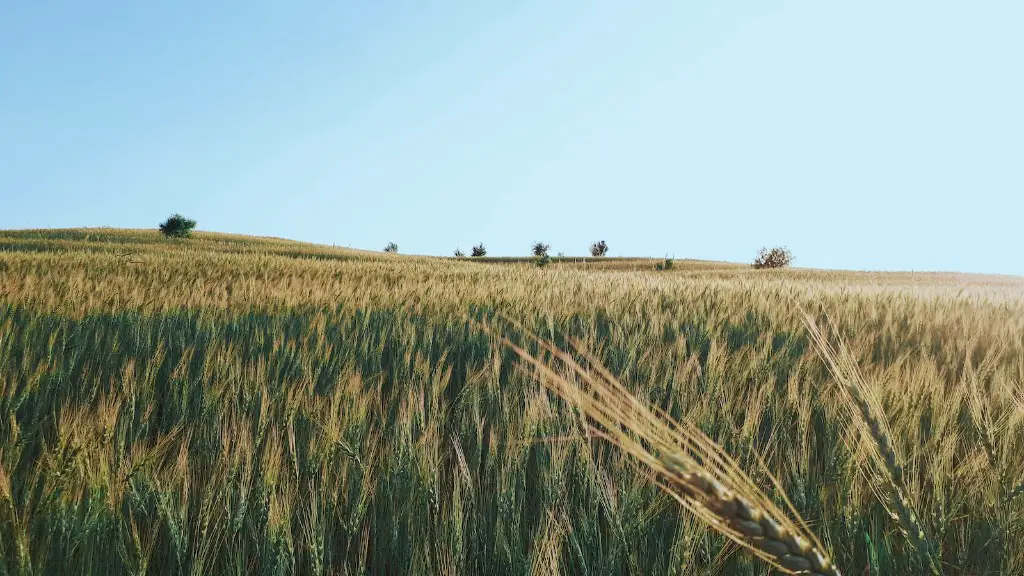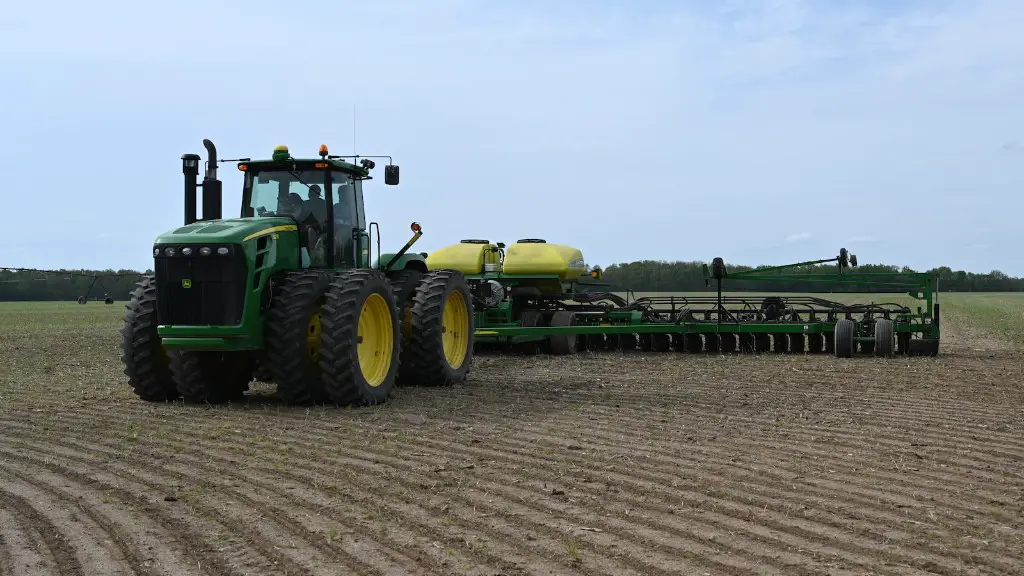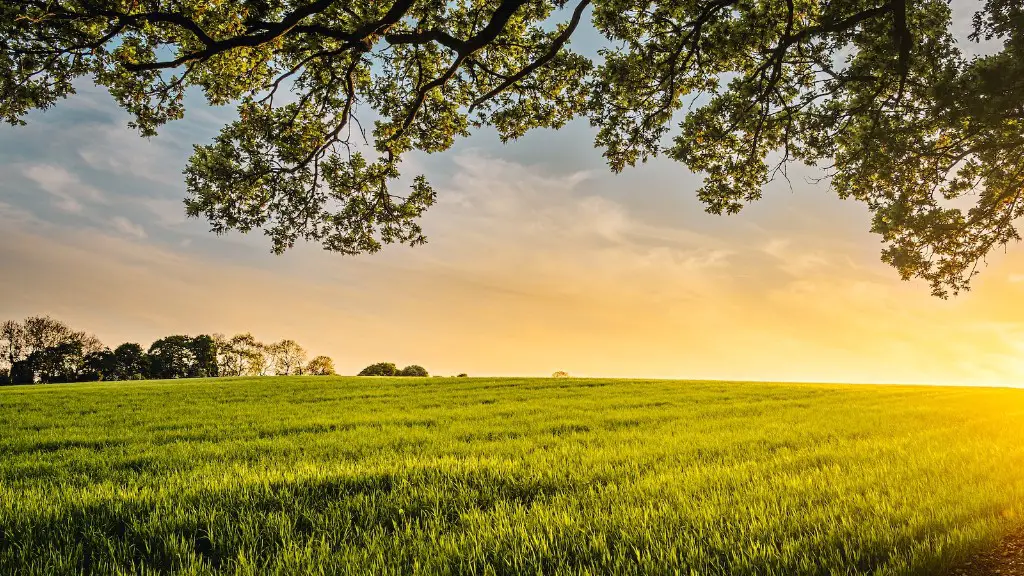Honey bees are important to agriculture for a number of reasons. They are responsible for pollinating a large number of crops, which helps to increase yields. They also produce honey, which is a valuable product in itself, and can be used to make a variety of other products like beeswax and royal jelly.
Honey bees are important to agriculture because they pollinate crops. One third of the human diet comes from plants that require pollination from bees, so without them, we would not have some of the most staple foods that we rely on.
What are 5 reasons why bees are important?
Bees are one of the most important insects on the planet, and they play a vital role in our ecosystem. Here are the top 5 reasons why bees are so important:
1. They help produce 1/3 of our food supply – Bees pollinate a huge variety of fruits, vegetables, and nuts, and without them, our food supply would be severely diminished.
2. They help provide half of the world’s fibers, oils, and other raw materials – Bees produce honey, which is used in a variety of products, and they also pollinate crops that are used for fabrics, oils, and other raw materials.
3. They create many medicines – Bee pollen, propolis, and royal jelly are all used in traditional medicines, and they have a wide range of therapeutic benefits.
4. They provide food for wildlife – Bees are a major food source for birds, bats, and other animals, and their pollination helps to maintain a healthy ecosystem.
5. They help prevent soil erosion – Bees help to pollinate plants that prevent soil erosion, and they also help to aerate the soil with their burrowing behavior.
Insect pollination is essential for many crops in the United States. Honey bees are the primary pollinators for many of these crops, and their pollination services are worth billions of dollars each year. without them, we would have significantly lower yields and lower quality harvests.
What would happen if honey bees went extinct
The extinction of honeybees would have far-reaching consequences for both the economy and the environment. A decline in the population of honeybees would lead to a decrease in the pollination of crops, which would in turn lead to a decrease in the production of fruits and vegetables. This would cause an increase in prices for these items, as well as a decrease in the availability of these items. In addition, the loss of honeybees would also have a negative impact on the environment, as they play an important role in the pollination of plants.
Bees are absolutely essential for the pollination of many crops and plants. Without them, we would not have nearly as much food to eat. We must do everything we can to protect bees and their populations.
Why would humans survive without bees?
We cannot live without bees because they play a vital role in the pollination of plants. Pollination is necessary for the reproduction of many plants, and bees are one of the main pollinators of flowering plants. According to the United States Department of Agriculture, pollinators like bees and butterflies help pollinate approximately 75 percent of the world’s flowering plants. They also pollinate roughly 35 percent of the world’s food crops—including fruits and vegetables.
If honeybees disappeared, the human diet would suffer tremendously. The variety of foods available would diminish, and the cost of certain products would surge.
Do honey bees help all agriculture?
Honeybees are important for the pollination of many crops, but not all crops require or benefit from honeybee pollination. The production of such crops as a percentage of total food production is increasing throughout the world. Pollination by honeybees increases the size, quality and/or stability of harvests for an estimated 70 per cent of the world’s main crops.
One out of every three mouthfuls of our food depends on animals like bees and pollination taking place. This means that if we want to continue to enjoy a varied and nutritious diet, we need to do everything we can to protect our pollinators.
That means creating habitat for them, reducing the use of pesticides that can harm them, and educating others about the importance of these incredible creatures. We all have a role to play in safeguarding our pollinators – let’s make sure we do everything we can to help them.
How are we benefited from bee farming
Bees are essential for the pollination of many crops, and the preservation of biodiversity. Pollination is a valuable ecosystem service that helps to produce fruits, vegetables, nuts, cotton, and oilseed crops. without bees, many of these crops would not be able to grow.
It is often said that if the bee disappeared from the surface of the globe, humanity would have only four years of life left. This is because food crops would have no one to pollinate them. Einstein is often quoted as the source of this claim, but it is uncertain whether he actually said it. Nevertheless, it highlights the importance of bees in our environment.
Are honey bees good for the environment?
Although honey bees are important for agriculture, they can also destabilize natural ecosystems by competing with native bees. This can be a problem for some native bee species that are already at risk.
This is because bees play a vital role in pollination, and without them, we would not be able to grow the crops that we rely on for food.
What is the economic importance of honeybee
In North America, it is estimated that around 30% of the food humans consume is produced from bee pollinated plant life. The value of pollination by bees is estimated around $16 billion in the US alone. We would be unable to enjoy most of our favorite fruits, vegetables, or nuts without these pollinators.
Bees are essential for the pollination of our plants. They carry pollen between plants of different sexes to fertilise them, or even between different parts of the same plant. This helps plants reproduce and even survive by preventing inbreeding.
Will we starve without bees?
Bees are an important part of our ecosystem and play a significant role in the food we eat. They help pollinate plants so that they can produce seeds and fruits, and without them, our food supply would be greatly diminished. We should do our best to protect bees and their habitats so that we can continue to enjoy the benefits they provide.
Females are important to the colony because they are the only ones who can produce females. The sterile worker females can lay eggs, but they can’t mate with the male drones, and unfertilized eggs yield only males. This means that the colony cannot survive without the queen.
Would the world collapse without bees
Without bees to pollinate them, plants would eventually die off. This would lead to a lack of food for wild animals that eat those plants. This plant-based food shortage could continue along the food chain and eventually affect almost all living creatures on the planet.
There is no denying that bees are in trouble. Their populations are declining at alarming rates and they are now considered to be at risk of extinction. There are many factors that have contributed to this decline, but the three main ones are large-scale changes in land use, industrialised agricultural practices, and the use of pesticides.
Changes in land use have had a large impact on bees. The destruction of their natural habitats, whether it be for housing developments, farming, or other uses, has left them with fewer places to live and forage for food. This has made it harder for them to find the resources they need to survive.
Industrialised agricultural practices, such as monocultures, have also had a detrimental effect on bees. These practices have led to the loss of flower-rich habitats, as well as the use of pesticides that are harmful to bees. This has further reduced the availability of food for them and made it more difficult for them to thrive.
The use of pesticides is also a major factor in the decline of bee populations. Many pesticides are highly toxic to bees and can kill them directly. Even those that are not toxic can still harm bees by disrupting their ability to navigate, forage, and reproduce. This
Final Words
Honey bees are important to agriculture because they help pollinate crops. bees transfer pollen from the male organ or stamen of a flower to the female organ or pistil. This process is called pollination and is necessary for the production of many fruits, vegetables, and nuts.
The honey bee is important to agriculture because it is a pollinator. Pollination is the process of transferring pollen from the male organ or stamen of a flower to the female organ or pistil. This process is necessary for the plant to produce seeds.
